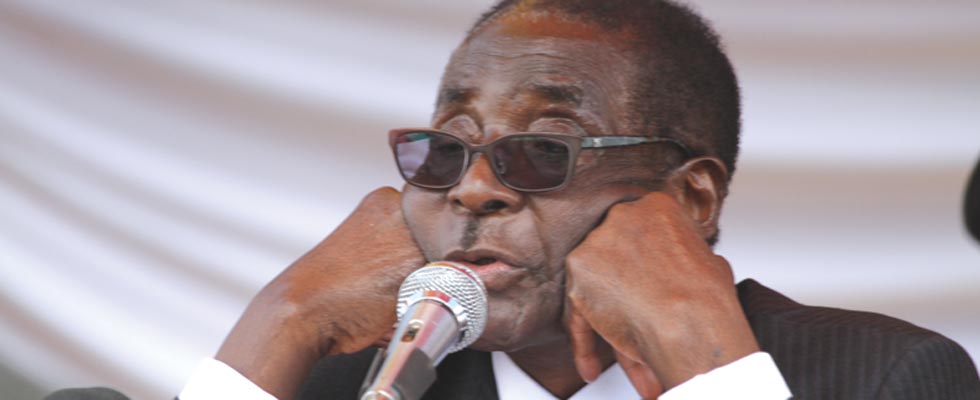
The government of Zimbabwe’s core business appears to have been reduced to paying civil servants’ salaries, abandoning other responsibilities, as the economy becomes President Robert Mugabe’s biggest undoing, one year after sweeping to power in 2013.
BY NDAMU SANDU
Last week Zanu PF celebrated its victory anniversary notwithstanding the attendant economic collapse since Mugabe retained the keys to State House in a controversial election. Zanu PF promised when campaigning that it would create over two million jobs by 2018. Of that figure, 222 800 were supposed to have been created in the first year.
The glaring fact on the ground however is that many hundreds of jobs have been lost since that promise was made as scores of companies close every month.
The manufacturing sector was projected to add 15 000 jobs to 140 000 in the first year. Needless to say, the opposite has been true. Companies continue to shed jobs every day, weighed down by the harsh economic environment.
Statistics from the Zimbabwe Congress of Trade Unions show that 15 companies retrenched 2 491 in the first half of the year. Analysts have warned that more jobs would be shed in the second half of the year.
Government’s tax base has been shrinking as the faltering takes a toll on companies.
The biggest tax contributors in a healthy economy — Paye and corporate tax — have been shrinking drastically, showing a disturbing level of economic decline. Statistics from the Zimbabwe Revenue Authority show that revenue collection in the first half declined by 1% to $1,72 billion from the same period last year.
- Drama around Ndebele king making a mockery of the throne
- Umkhathi Theatre Works on King Lobengula’s play
- Street mural exposes Zim’s divided society
- Minister tips ICTs to drive economic recovery
Keep Reading
Of that revenue, individual tax (Paye) contributed 25%. This does not mean that more jobs were created in the first half but a result of Zimra’s intensified raids and penalties. Analysts say although the blitz yielded fruit, it was unsustainable in the short to medium term.
In a letter to the International Monetary Fund, Harare told Washington that there are significant risks to the revenue side of the budget. It said the country was facing large maturities on domestic T-bills and loans in 2014.
Government has been borrowing on the domestic market to finance recurrent expenditure and clear debts as revenue inflows are inadequate to meet competing needs.
To mitigate the challenges, Zimbabwe told IMF that Finance minister Patrick Chinamasa had proposed a stimulus package of nearly US$1 billion.
“The package amounts to about US$ 933 million [6,9% of GDP] and places a heavier weight on revenue measures, including US$ 554 million [4,1% of GDP] from selective increases in customs duties, targeted tax compliance operations, non-tax revenues mobilised largely by redirecting surplus resources in several extra-budgetary funds, and from measures to address custom revenue leakages,” government said.
Analysts say raising more revenue from taxes would deliver the final blow to the economy.
“Government cannot extract something from the already bleeding companies. What government is planning to do is akin to expecting to get orange juice from lemons,” a commercial lawyer said.
Former Finance minister Tendai Biti said the economy has been informalised, typical of a collapsing economy in which people produce for self-sufficiency.
In his 2014 national budget, Chinamasa said the old economy was dead and a new one, based on the informal sector, had been born, urging financial institutions to support small to medium- sized enterprises.
Biti said the informal sector does not pay taxes but operates on a layer of licences and pay rents to warlords. This system is prevalent at Mupedzanhamo and Siya-So in Mbare where Zanu PF chefs collect daily rentals at the expense of the Harare City Council.
“There is a lot of patronage which is characteristic of the informal sector and you see the merging of the informal sector with the party’s [Zanu PF] apparatus,” he said.
Biti said the sectors that can escape the scalp of the economic crisis were the extractive and tobacco industries because they produce for exports.
Economic commentator Gilbert Muponda said the most pressing issue since elections was the failure to resolve the liquidity crisis and to get access to international resources in the form of foreign direct investment.
“The main problem is isolation from international capital,” he said.











